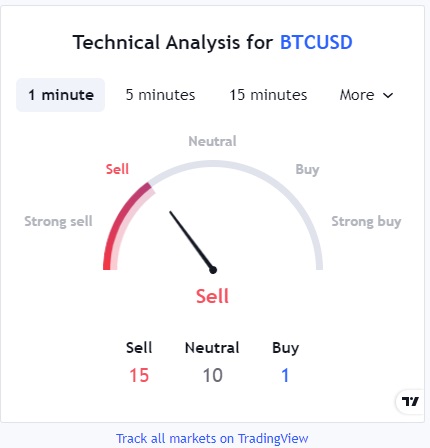
The relationship between the launch of Bitcoin ETFs (Exchange-Traded Funds) and the fall in Bitcoin’s price can be complex and multi-faceted, and it’s essential to remember that correlation does not necessarily imply causation.

However, several theories have been proposed to explain this phenomenon:
- Market Speculation and Sentiment: The launch of a Bitcoin ETF can lead to increased market speculation. Investors may have anticipated the ETF launch, leading to a “buy the rumor, sell the news” phenomenon where the actual event leads to a sell-off after a period of speculative buying.
- Increased Market Liquidity and Volatility: ETFs can increase the liquidity of Bitcoin by making it more accessible to traditional investors. However, this increased liquidity can also lead to greater volatility, as more traders are able to quickly move in and out of positions.
- Regulatory Concerns: The launch of Bitcoin ETFs brings more regulatory scrutiny to the cryptocurrency market. Investors might fear that this increased attention could lead to stricter regulations, which could negatively impact Bitcoin’s price.
- Profit Taking: The introduction of an ETF can be seen as a milestone event, leading to some long-term holders of Bitcoin selling to realize profits.
- Shift in Investor Base: ETFs open up Bitcoin investment to a new class of investors who might have different strategies and risk tolerances compared to traditional cryptocurrency investors. This shift can affect the market dynamics and potentially lead to price fluctuations.
- Market Manipulation Concerns: Some investors may be concerned about the potential for market manipulation with the introduction of ETFs. This could lead to reduced confidence in the stability of Bitcoin’s price.
- Impact on Bitcoin Futures Markets: Bitcoin ETFs, particularly those based on futures, can impact the futures market for Bitcoin. This can lead to changes in the premium or discount of Bitcoin futures relative to the spot price, affecting overall market sentiment.
It’s important to consider these theories within the broader context of the cryptocurrency market, which is influenced by a wide range of factors, including technological developments, broader economic conditions, and changes in investor sentiment. The influence of ETFs on Bitcoin’s price is just one aspect of the complex dynamics at play in the cryptocurrency market.
WeInvests is a financial portal-based research agency. We do our utmost best to offer reliable and unbiased information about crypto, finance, trading and stocks. However, we do not offer financial advice and users should always carry out their own research.
Read More












